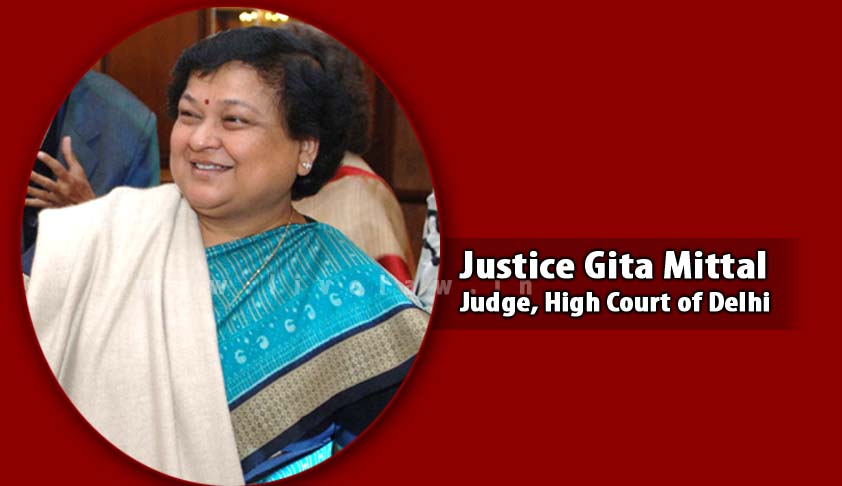Yale Law School Recognizes Justice Gita Mittal's 2013 Judgment On Court Fees (Delhi Amendment) Act
Aditi Saxena
28 Sept 2016 11:55 AM IST

Next Story
28 Sept 2016 11:55 AM IST
The Indian judicial system can boast of many landmark judgments that have served society at large. Of these judgments, one recently attracted eyeballs from the global audience to have served social change by protecting judicial independence and questioning legislative authority of the state.A Delhi High Court judgment of 2013 penned down by Justice Gita Mittal has been included in Yale...
